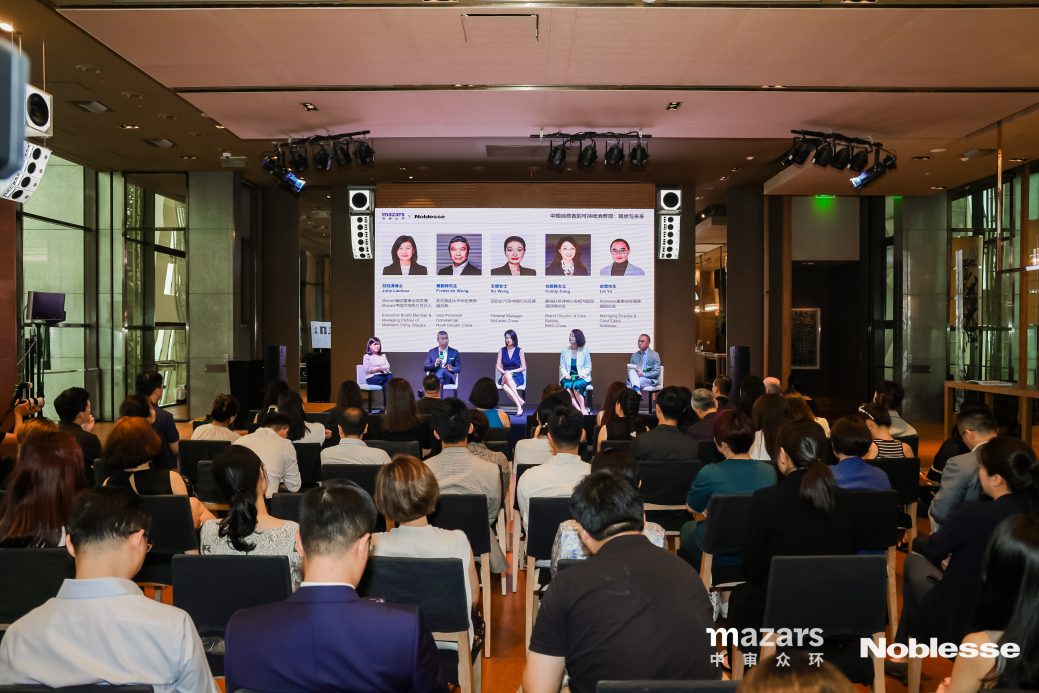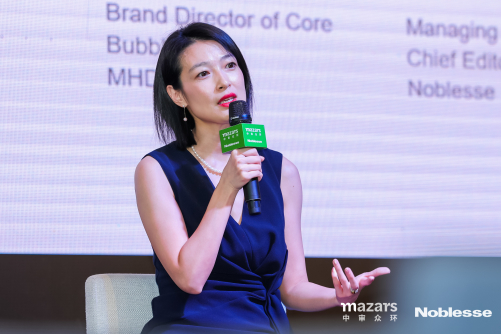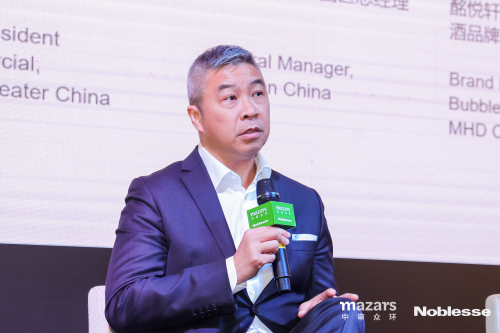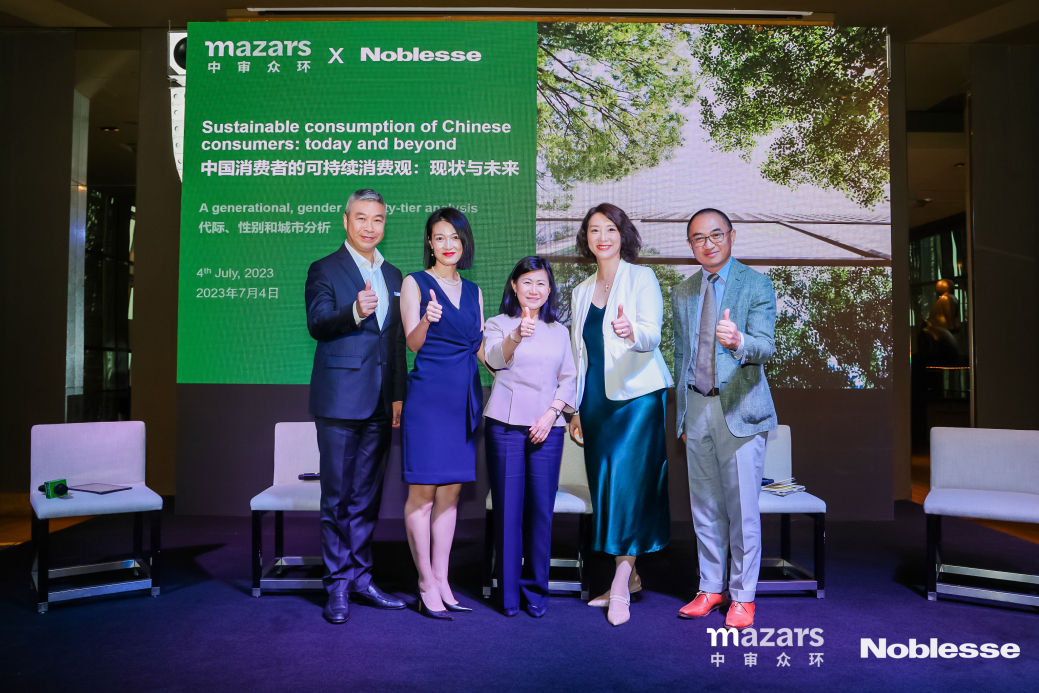Sustainable concept with “Chinese characteristics” draws attention as sustainable consumption market grows
The latest Mazars research report, Sustainable consumption of Chinese consumers: today and beyond – a generational, gender and city-tier analysis, yields four key insights as below:
- Chinese consumers’ understanding of sustainability takes into account the sustainable development elements of the international community, while also presenting distinctive ‘Chinese characteristics’. ‘Common prosperity’ is considered by consumers to be the most urgent sustainable development goal in China.
- Differences in consumer values emerging across generations, genders and cities result in different sustainability concepts of different consumer groups. For example, consumers from the older two generations tend to have a traditional view of sustainability in terms of environmental protection, health and economic development. However, Millennials and Generation Z also focus on issues such as education, equality, and diversity, and pay more attention to a brand’s “political stance”.
- Consumers expect brands to maintain continuous innovation on sustainability – including measures related to materials and carbon reduction, and take into account the balance of category, price and function in terms of sustainability. 80% of consumers believe that their loyalty to a brand will increase if it practices sustainability. Only by integrating sustainability into the soul of the brand can enterprises gain more brand followers.
- Experiential consumption has become a mainstay of sustainable consumption, with two younger generations of consumers supporting emerging sustainability concepts such as commodity recycling and renting. The future sustainable development of brands will be more diversified.
Click here to download the report
Following the study “Chinese consumers in 2021: How priorities in lifestyle consumption are changing”, Mazars, an international, integrated audit and advisory firm, once again teamed up with its media partner “Noblesse” and four leading brands – Hyatt, McLaren, Moët Hennessy Diageo (MHD) and Tiffany & Co. to conduct a new survey among Chinese consumers.
Recently, the launch of the report and a roundtable was held at Park Hyatt Shanghai. Dr. Julie Laulusa, Managing Partner of Mazars in China and a member of the Group Executive Board, and Mr. Lei Yu, Managing Director and Chief Editor of Noblesse, co-hosted the event and invited Mr. Frederick Wong, Vice President Commercial of Hyatt Greater China, Ms. Na Wang, General Manager of McLaren China, and Ms. Candy Cang, Brand Director of Core Bubble of MHD China, to discuss and share their views and insights on this sustainable perception report covering all age groups of Chinese consumers.
Since 2020, Mazars has launched an annual survey of Chinese consumers. According to its report, ‘Chinese consumers in 2021’, Chinese consumption concepts have once again advanced further, with consumers’ desire for spiritual consumption gradually overtaking more material pursuits. This year, Mazars takes a detailed look at Chinese consumers’ views on sustainability across generations, genders and cities, covering their definition of sustainability, current behaviors, expectations for brands’ sustainable development and the future of sustainable consumption, in order to provide a reference for major brands to practice sustainable development in China. The survey officially kicked off in the first quarter of 2023, a total of 4,428 valid responses were finally collected, covering Chinese consumers of four age groups – Baby Boomers (aged 58-76), Generation X (aged 41-57), Millennials (aged 28-40), and Generation Z (aged under 27).
Dr. Julie Laulusa, Managing Partner of Mazars in China and a member of the Group Executive Board, stated: “As ESG growth accelerates across the world, more and more companies and brands are recognizing the importance of sustainability in relation to their consumer markets. Mazars hopes to leverage its many years of experience and expertise in the field of consumer and luxury goods, to sort out and discuss consumers’ sustainable consumption concept, and thus provide guidance for brands and industry professionals committed to the development of the Chinese market to formulate tailor-made sustainable plans, and jointly grasp this booming business environment.”
Dr. Julie Laulusa
Managing Partner of Mazars in China and a member of the Group Executive Board
The research report shows that Chinese consumers’ understanding of sustainability takes into account the sustainable development elements of the international community, while also presenting distinctive ‘Chinese characteristics’. The top three definitions of sustainability in China are: reducing pollution and optimising the living environment; good health and well-being; and narrowing the gap between the rich and the poor as well as achieving common prosperity. At the same time, Chinese consumers believe that sustainable development is closely related to government planning and policy implementation. This suggests that brands should “adapt to local conditions” when formulating sustainable strategies for the Chinese market, based on the sustainable values of Chinese consumers.
When it comes to sustainable consumption, over three quarters of consumers mention that they are willing to proactively learn about brands’ sustainable practices and have participated in sustainable consumption. Nearly 90% of consumers plan to increase their sustainable consumption in the next three years, of which over 80% believe that sustainable consumption will account for more than half of their total spending in the future, and nearly 40% plan to increase it to over 80% of their total consumption. These figures show that sustainability issues have become a key factor in the long-term growth of brands in the Chinese market.
Among them, consumer attitudes towards sustainable vehicles have changed significantly. In the future, support for sustainable vehicles will increase across all age groups. Millennials will replace Gen Xers as the main consumers of sustainable vehicles, and Gen Zers, who used to be the most conservative in terms of sustainable vehicle consumption, will also significantly increase their willingness to consume in the future. All these coincide with its sustainable concept of protecting the environment and reducing carbon emissions, saving energy and practicing a sustainable lifestyle.
Speaking of the growing interest in sustainable vehicles, Ms. Na Wang, General Manager of McLaren China, said, “In terms of the industry as a whole, China is a leader in the EV trend, with 60% of global EV sales in 2022 being in China. Today, more than half of the world's electric vehicles are in China, thanks to three factors – increased environmental awareness, policy advancement by the Chinese government, and continuous innovation at the technological level. As a luxury high-performance sports car and supercar brand, McLaren has not sacrificed driving pleasure and performance in the process of joining the electrification of sports cars. We also hope that Chinese customers can learn more about and join the automotive culture, and experience the innovative strength and pioneering technology of McLaren cars.”
Ms. Na Wang, General Manager of McLaren China
According to the research report, the most popular sustainable consumption categories among Chinese consumers consist mainly of clothing, footwear and hats, food and wine, hotel and travel, furniture and home furnishings and electronic products. Among the top five consumption categories, experiential consumption – food and wine, and hotel and travel, occupy the top two spots, indicating that experiential consumption has become a mainstay of sustainable consumption. The sustainability marketing merely shaping a superficial image of sustainability can no longer easily impress and convince the main consumer groups of the coming decades – Millennials and Gen Z, who expect brands to embrace solid sustainability initiatives.
Ms. Candy Cang, Brand Director of Core Bubble of MHD China, said, “‘Living Soils Living Together’ is the most important sustainability plan of Moet Hennessy worldwide, not only responsible for our partners, but also committed to the protection of humanity’s common home planet. Through a series of sustainability initiatives in different parts of the supply chain, including growing, production, packaging, logistics and marketing, our consumers truly experience how we practice sustainability during which their awareness of sustainability is raised as well. ‘Cultural sustainability’ is also one of our development ambitions, and we have invested in the construction of two wineries in China to bring wines with Chinese characteristics to the world. We hope that socially responsible companies will eventually gain consumer support to make sustainability ‘sustainable’.”
Ms. Candy Cang, Brand Director of Core Bubble of MHD China
With the increased awareness in experiential consumption’s role in sustainable development, the market has also reacted positively. Experiential consumption brands in hotel and F&B industries have started to proactively embrace the concept of green development, to explore and practice sustainability in multiple dimensions.
“After the pandemic, we see that Chinese consumers are attaching more importance to sustainability," Mr. Frederick Wong, Vice President Commercial of Hyatt Greater China, shared at the roundtable. “Hyatt launched the ‘World of Care’ platform in 2020, actively promoting and implementing a series of sustainable initiatives globally, such as replacing eco-friendly material key cards and electronic keys in our hotels, and changing hotel supplies to large-size packaging to reduce waste, and guiding all hotels and colleagues of the group to care for the earth, care for people, focus on corporate responsibility, and promote green consumption awareness from within and outside. In terms of catering, we adhere to responsible sourcing and further implement the concept of green dining by using locally sourced and sustainable ingredients that are in season. After knowing about the brand’s efforts in the field of sustainability, many consumers will think that the brand is trustworthy and should be supported. We also hope that through better cooperation between enterprises, government and recyclers in the future, we can push the concept of sustainable development further, provide more meaningful green experiences for Chinese consumers, and set a benchmark for sustainable development in the tourism industry.”
Mr. Frederick Wong, Vice President Commercial of Hyatt Greater China
The report also states that the uniqueness and diversity of the Chinese market itself, plus the rapid development of Chinese society and the economy over the past four decades has seen differences in consumer values emerge across generations, genders and cities. Based on this, some industry-leading brands have set up sustainability departments in China and some brands have successfully implemented sustainable initiatives adapted to younger consumers.
Mr. Lei Yu, Managing Director and Chief Editor of Noblesse, said, “In fact, many of the brands’ sustainability initiatives are not seen by consumers. I am happy that more behind-the-scenes stories were dug out through today’s sharing. The road to sustainable development for brands can be long and full of obstacles. Only brands that truly understand the Chinese market and its multi-layered consumers will be able to develop effective sustainable development strategies. It is expected that more brands will continue to embrace sustainability and explore and practice the possibility of sustainable development in an all-round and multi-dimensional way.”
Mr. Lei Yu, Managing Director and Chief Editor of Noblesse
“In the Chinese market, sustainable consumption has become an irresistible trend and sustainability will be a strategic priority for every enterprise’s future development.” Dr. Julie Laulusa concluded the roundtable by saying, “We see that more Chinese consumers are willing to increase sustainable consumption in the future, and brands are one of the keys to promoting consumer sustainability awareness. How to develop a sustainable development strategy with Chinese characteristics will help meet consumers’ expectations for a more diversified sustainable consumption in the future, and may become the key to the success of the brand.”







